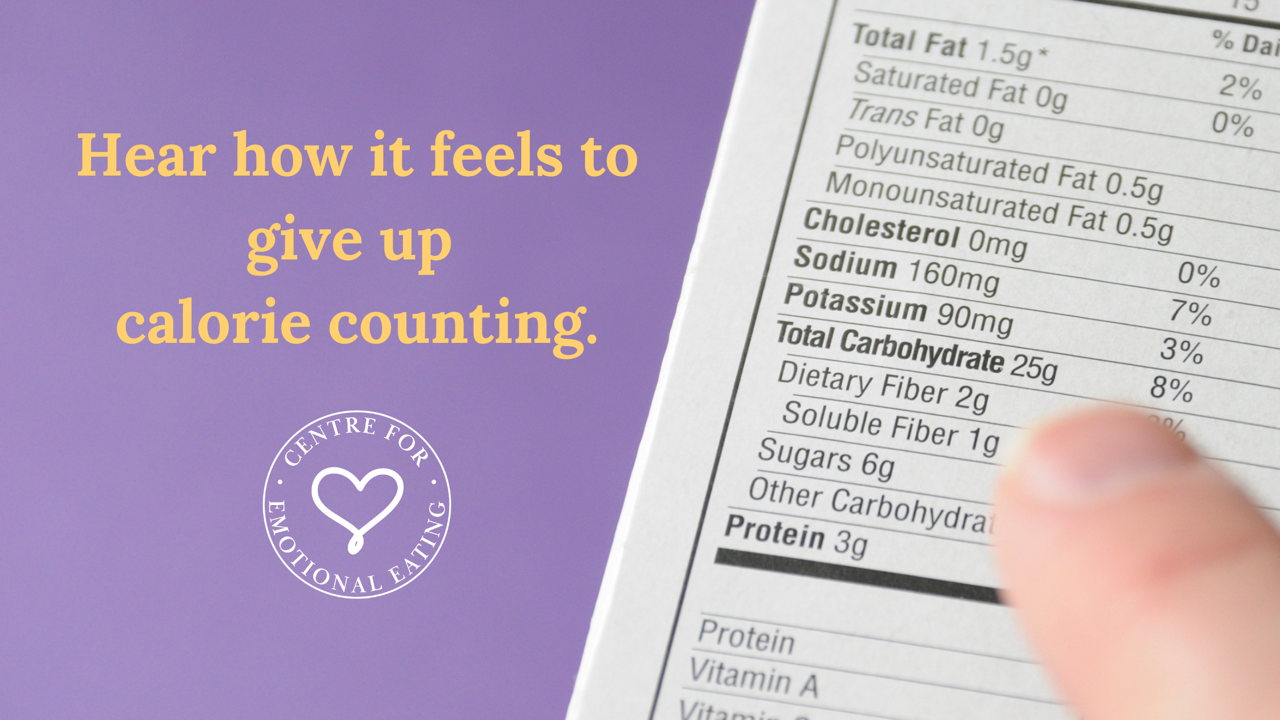BLOG
Find support not just for emotional eating, but all aspects of your well-being.
Reading as a Form of Self-Care (with book recommendations!)

Today’s blog is a guest post from Marisa over at Le Salon Literary Discussions. She runs a bookish business that offers reading recommendations, monthly online book discussions, and more!
Reading can be such a great way to relax. It can also be educational and help you learn new ideas and see yourself in new ways, which can be invigorating! No matter which you choose, both of these can support a sense of self-care.
I know it can be challenging to find time to read these days between work, life, TV, and scrolling. If you need a few tips on how to make some time to pick up your book or e-reader, I’ve got some advice that might help. My biggest tip is to make sure you are enjoying what you are reading—and that will look different for everyone. From romance to graphic novels, thrilling mysteries to classic novels. Here are some book recommendations to get you started.
Non-fiction books to support your body and mind:
- Furiously Happy: A Funny Book About Horrible Things by Jenny Lawson ...
Tips to Feel Your Best During Bathing Suit Season

The summer ‘uniform’ is made up of shorts, tank tops, and sweating! All can make you feel uncomfortable if you struggle with body image. But perhaps the most dreaded of all is the bathing suit. At some point we go from children who love being in the water and playing in the sand without a second thought, to worry-charged and self-conscious adults who will actively avoid situations that require suiting up.
If this sounds like you, you’ll want to bookmark this post to come back to when you’re faced with a bathing suit event. Here are 4 tips to make you feel more comfortable (dare we even say confident!):
- You’ve heard it before but it bears repeating: no one is as concerned about your appearance as you are. We in no way want to discount experiences where someone something commented on your body. No one gets to do that and here’s what you can do if it happens. But we can be our own worst enemy when it comes to criticizing ourselves. Consult someone you trust, a partner or friend, who c ...
Client Insight: “It was scary, but I’m glad I stopped counting calories.”

The following blog posts talks about calorie counting in some detail. If this is something that might bring up negative feelings for you, please skip this post to protect your mental and physical health. 💛
After eating emotionally you might be thinking you need to do a complete 180 and get really strict about what and how you’re going to eat next. A common way to feel in control of your eating is to count your calories. It’s become so easy these days as the diet industry has created apps that are always in the palm of our hands and can even scan labels!
Often clients will be able to white knuckle their way through a few days of eating low calorie only to find themselves binge eating at the first sign of stress, alone time, or even faced with a dinner they can’t ‘log’. And it can feel like being right back where you started after the initial overeating episode.
Very often it feels scary to let go of counting calories, but doing so can bring you back in-tune with your body in a way yo...
What is Body Checking?

It might feel normal to pass by a store window and check out your reflection. But if you’re noticing more than simply adjusting your scarf or hat, you might be falling into body checking.
Body checking is any way you monitor your body’s appearance. This might look like:
- Pinching or pulling at skin to temporarily manipulate how your body looks.
- Examining your stomach in the mirror while trying to “suck in” as much as possible.
- Stepping on the scale often.
- Taking photos of your body constantly, swearing they will be your “before” photos.
- Comparing your body now to one you had as a teenager or to others around you.
You might even notice that these habits become even more frequent when you are stressed, feeling sad, or even just about to go on vacation! The issue with body checking is that you’ll never feel like you are measuring up to whatever you’re hoping for because it is a way of constantly critiquing your body. The diet industry doesn’t help us at all! Even if it changes i...
Client Insight: “I cleaned out my ‘skinny’ clothes from my closet and I love the result.”

For many of you who have been on the diet rollercoaster for years, you probably have collected two wardrobes: one you’re trying to feel good in now and the other is the clothes you hope to fit back into one day. You might even find yourself putting off buying clothes you feel your best in because you’re waiting to lose weight and don’t want to ‘waste’ the money.
Here at the Centre for Emotional Eating we hear this from clients often! Not only is there a wish to one day be the smaller size you were previously, a lot of the time you also have emotional ties to those clothes because of who you were when you wore them. For example, one client loved her blouses and pencil skirts because it reminded her of a time when she was happy in her career.
But getting rid of these clothes will not only free up real space in your closet it will also free up mental space. Here’s what we hear from clients once they’ve taken the plunge and cleaned out their closets of clothes that no longer fit them or ...
Letting Go of Food Rules

A lot of emotional eaters use food rules to try and control their eating. This might look like:
- Counting calories, points, or macros.
- Not eating after 7:00 p.m.
- Not eating or limiting carbs, sugar, or fat.
- Leaving food on your plate.
- Drinking coffee or diet soda to fend off hunger.
Sound familiar? These rigid rules are a reaction to the out-of-control-feeling experienced when strong emotions take over and you head to the fridge looking for something to numb out on. We learn rules from our parents, friendship circles, diet culture, and social media. These rules also make you feel as if you are in control (at least for a little while), which makes it extra frustrating when you “fall off the wagon.”
It may seem logical to try and balance situations where you eat a lot of food with other times of much less food, but the truth is it doesn’t even out that way… And you end up getting stuck in the restrict/binge cycle. This looks like: strict diet > have a craving or emotional exper...
What is Body Neutrality? (And How it Can Help You)

There is a big movement, especially on social media, to be body positive. It is the idea that you feel positive about your body—embracing how it looks, how you feel in it—most of the time. It is meant to lead to more self-confidence, self-love, and total acceptance of your weight, which all sounds great!
… But what if you’ve spent years absorbing diet culture messaging? Or you eat emotionally and that leads to feelings of shame and guilt around your body? It can seem impossible to get to a place where you unconditionally love your body and actively feel positive about it.
This is where the idea of body neutrality comes in.
Being “neutral” about something means you don’t have any positive or negative feelings about a topic, it simply is. This is something you can apply to how you feel about your body. If you constantly beat yourself up after going clothes shopping or suck in your stomach every time you look in a mirror, you might find ALL your ideas around your body are negative. The...
5 Powerful Tips for Dressing During the Holidays

As the holiday season gets closer, it seems like invites for family, friend, and work events are rolling in non-stop. And dressing for an event can sometimes feel like putting on the armour before a battle. You consider the weather, if you’ll sweat through a fabric, if your jeans are fresh from the dryer and need to be stretch back out. You might always find yourself reaching for the same clothing items: black and drapey.
But we’re here to encourage you to use your clothing as a way to get a confidence boost! Here are five insightful tips to help you find clothes you love and feel your best in:
Be you, boo! First things first, find out what your personal style is without thinking about how something might look on your body (all black clothing “because it’s slimming” isn’t an option here). Are you called to soft yellows and greys, or do you love a splash of fuchsia against classic navy? While brand websites might feature only thin models, this is actually an area where social media ha...
Concrete Examples to Push Back Against Your Inner Critic

It is common to suffer from low self-esteem here and there. But often when someone is in an emotional spiral, or their depression is strong, out inner critic seems to be blasting negative thoughts on repeat. And it can be extremely powerful as it uses the first person:
- “I’m so fat. No wonder no one loves me.”
- “Look at how I jiggle. I’m so disgusting.”
Sometimes the voice might instruct you to pinch, suck in, or smooth certain parts of your body. These thoughts can feel true to us if we don’t challenge them. But how do you even begin to do that? Let’s look at the same comments above and see how we might push back against them:
- “I’m so fat. No wonder no one loves me. Wait. This can’t be true, my partner/friends/family tell me they love me.”
- “Look at how I jiggle. I’m so disgusting. STOP! That thought isn’t helping me.”
In both examples, you can see there is a need to break the negative thought off with “wait” or “stop.” These short words shock that negative thought! Sometim...
Client Insight: “Therapy was about learning to manage my trauma, not get rid of it”

Emotional eaters tend to be tempted by a quick fix, especially if you’re weight goes up and down with your feelings. Heck, that’s how they sell diets to us again and again: “lose 20 lbs in a week!”, “Here’s the one thing you need for lasting weight loss.” The truth is, there is no quick fix when it comes to a healthy lifestyle. And that’s true about therapy too.
When first dipping their toe into therapy, clients will often begin look for a concrete timeline on when they can expect to have managed their grief or processed their trauma. This makes sense: we want to know when the tough stuff will end so we can get on with living out lives. But the difficult thing about these experiences that impact our emotions, outlooks, and actions, is that they will always be with us in some capacity.
But don’t lose hope! Therapy not only gives you an outlet to process your emotions, but you also learn strategies along the way that you can draw on when you need to. For example, if someone had lost th...


